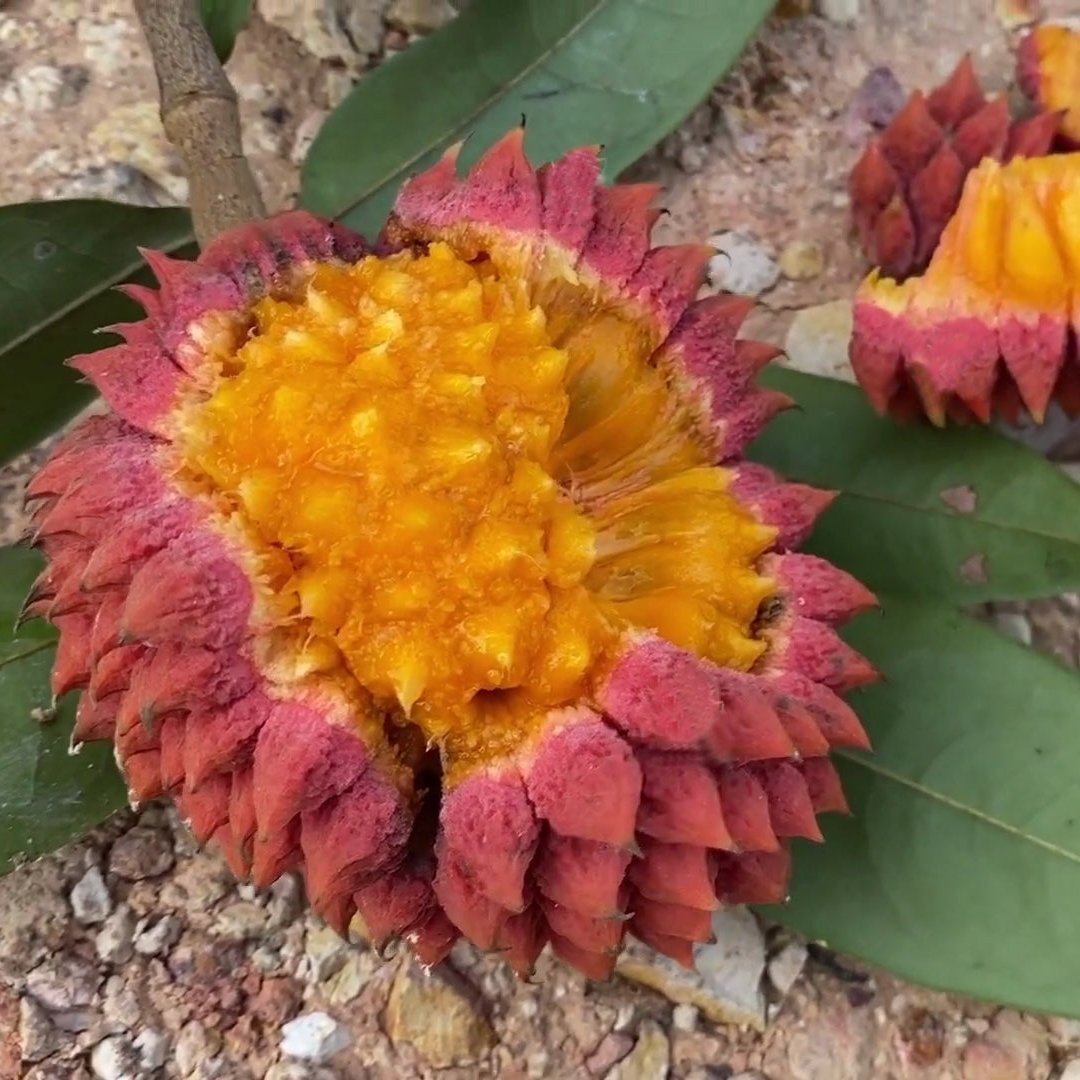Love it? Add to your wishlist
Your favorites, all in one place. Shop quickly and easily with the wishlist feature!
[message]
[title]
[message]


Veliyath Gardens
Couldn't load pickup availability
Ameju Fruit Plant (Duguetia echinophora): A Rare Brazilian Delight
The Ameju Fruit Plant, scientifically known as Duguetia echinophora, is a tropical treasure that stands out with its unique characteristics, nutritional benefits, and cultural significance. Native to the lush rainforests of Brazil, this elegant evergreen tree offers a combination of stunning appearance and delicious fruit, making it a sought-after addition to tropical gardens and farms. Its creamy, fiberless pulp and unique flavor profile have earned it a reputation as one of the finest-tasting species in the Duguetia genus.
The Ameju Fruit Plant is a slow-growing, evergreen tree that exudes elegance in its structure and beauty. It is native to Brazil, where it thrives in its natural tropical habitat.
The Ameju fruit is not only delicious but also packed with essential nutrients, particularly iron, which plays a vital role in overall health.
The Ameju Fruit Plant offers an array of health benefits that extend beyond its high iron content. Its antioxidant-rich pulp makes it a valuable addition to a balanced diet.
The Ameju Fruit Plant holds significant cultural value in Brazil, where it is appreciated for its culinary and medicinal uses. The fruit is commonly gathered from the wild for local consumption and is considered a delicacy.
From an environmental perspective, the Ameju tree plays an essential role in maintaining tropical forest ecosystems. As a native species, it supports biodiversity by providing food and habitat for various wildlife. Its slow growth and impressive stature make it a symbol of resilience in tropical forestry.
Growing the Ameju Fruit Plant requires understanding its natural environment and tailoring cultivation practices accordingly. While it demands moderate maintenance, its unique characteristics make it a rewarding choice for gardeners and fruit enthusiasts.
In addition to its nutritional value, the Ameju Fruit Plant is celebrated for its traditional medicinal uses. Local communities have utilized various parts of the tree for natural remedies:
The Ameju Fruit Plant is considered to require moderate maintenance:
Adding the Ameju Fruit Plant to your garden is an investment in both beauty and health. Its vibrant fruits, nutritional value, and cultural heritage make it a unique and rewarding choice for any tropical fruit enthusiast.
The Ameju Fruit Plant (Duguetia echinophora) is a remarkable tree that combines elegance, nutrition, and cultural significance. Whether you’re a plant lover, a gardener, or a tropical fruit enthusiast, this evergreen beauty offers the perfect blend of utility and aesthetics. With proper care and cultivation, the Ameju Fruit Plant can flourish, providing years of delight with its delicious fruits and striking presence.
Transform your garden into a tropical haven by growing the Ameju Fruit Plant and enjoy the many benefits this rare Brazilian gem has to offer.
It demands moderate maintenance....
Soil Requirements: Prefers well-drained sandy soil for optimal growth. It is essential to avoid waterlogged conditions.
Climate: Thrives in warm, humid tropical climates, similar to those found in its native Brazilian rainforests. It requires protection from frost.
Bloom Time and Fruiting: The tree typically takes 4 to 5 years to begin fruiting, a relatively moderate timeline for a slow-growing evergreen species.
Watering: Requires consistent but moderate watering to mimic the rainfall patterns of its natural habitat.
Boosts Energy Levels: Iron enhances oxygen flow to muscles and tissues, improving stamina and reducing fatigue.
Supports Immunity: By strengthening immune functions, iron helps the body fight infections.
Aids in Cognitive Function: Adequate iron levels contribute to better brain health and cognitive performance.
Promotes Digestive Health: The fruit's creamy pulp is gentle on the digestive system, offering a soothing, fiber-rich dietary option.
The fruit transitions from green when young to a vibrant red at maturity, revealing an orange edible pulp. Its fiberless, creamy flesh offers a delightful flavor that blends the taste of sugar apple (Annona squamosa) with cantaloupe melon. Local communities highly regard the fruit for its exquisite taste, often gathering it from the wild.



